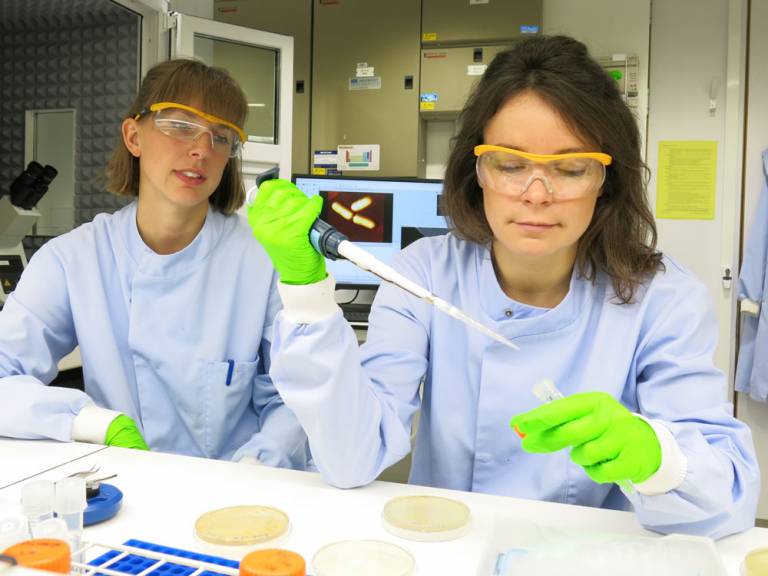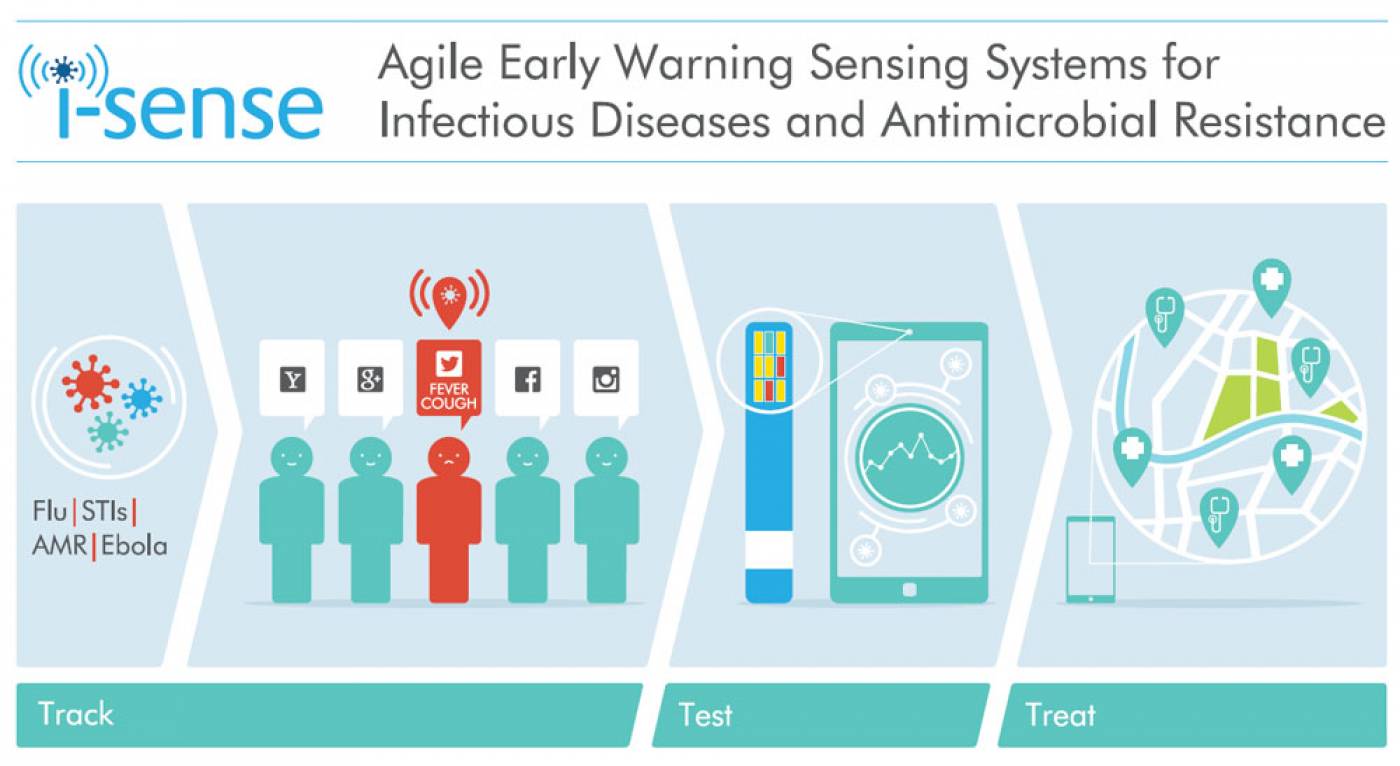UCL receives £3.8m for internationally-recognised healthcare research centre
7 December 2017
A UCL-led interdisciplinary research consortium, i-sense 'IRC Next Steps', has been allocated more than £3.
 8m in government funding for pioneering
developments of agile early warning sensing systems for infectious disease and
antimicrobial resistance.
8m in government funding for pioneering
developments of agile early warning sensing systems for infectious disease and
antimicrobial resistance.
Science Minister Jo Johnson announced £11m additional funding for the three Engineering and Physical Sciences Research Council (EPSRC) Interdisciplinary Research Collaborations (IRCs) today.
Led by Professor Rachel McKendry at UCL, i-sense is an interdisciplinary research collaboration on the cusp of revolutionising the way we track, test and treat infectious disease globally.
"Since i-sense received its original £11m in funding from EPSRC in October 2013, we have been working to harness the power of mobile phones, biomedical engineering, nanotechnology, genomics and big data to detect diseases much earlier than ever before, help people gain faster access to care and protect populations," said Professor McKendry (London Centre for Nanotechnology at UCL).
Recent outbreaks of Ebola and Zika viruses have exposed the world's vulnerability to emerging infectious diseases and further highlighted the urgent need for early warning systems.
"The follow on funding will maximise the impact of the current i-sense IRC, retaining key staff and delivering a step change in new capabilities to respond to emerging infections," said Professor McKendry.
EPSRC's IRCs are centres of internationally acknowledged scientific and technological excellence, bringing together researchers, clinicians, industry and other professionals to make a real impact in areas of key future industrial relevance to the UK.
Jo Johnson, said: "This additional £11 million investment will enable vital collaborations to continue addressing many of the most pressing health and wellbeing issues, boosting the UK's status as an innovation nation.
"Research and development are central to building a Britain that's fit for the future. Through our new Industrial Strategy and further investment of £2.3 billion, we are working with industry to remain at the cutting edge of scientific discovery."

The three IRCs are:
- i-sense, led by UCL, is engineering a new generation of agile, early-warning sensing systems to identify outbreaks of infectious diseases such as HIV, MRSA and flu much earlier than before, helping people gain faster access to care and protecting populations
- PROTEUS, led by the University of Edinburgh, is pioneering new fibre optic, sensing, imaging and signal processing approaches to revolutionise how lung diseases such as asthma, bronchitis and pneumonia are diagnosed and managed within the intensive care environment
- SPHERE, led by the University of Bristol, is developing sensors for use in the home in order to spot health and wellbeing problems ranging from depression and obesity to cardiovascular and musculoskeletal diseases
The next steps funding announced today will provide the IRCs with the support they need to become three self-sustaining centres of excellence in the respective areas of sensing in healthcare.
All three IRCs have made significant progress in their first four years; researchers at PROTEUS developed a camera that can 'see' through the body and have; a team at i-sense has developed mobile phone-connected tests to diagnose infections, including HIV and Ebola, in low resource settings; and SPHERE was named as the winner of the health and technology category at the 2016 World Technology Awards.
EPSRC Chief Executive, Professor Philip Nelson, said: "It is through innovative thinking and collaboration that we will address the biggest health and wellbeing issues facing society, and these three IRCs are the embodiment of that approach.
"They have already achieved a great deal in their first four years, and this additional funding will provide a springboard for them to realise yet more of their great potential and become thriving centres of excellence."
Links
- Professor Rachel McKendry's academic profile
- i-Sense
- London Centre for Nanotechnology
- UCL Mathematical & Physical Sciences
Image
- i-sense
Source
- EPSRC and i-sense
Media contact
Bex Caygill
Tel: +44 (0)20 3108 3846
Email: r.caygill [at] ucl.ac.uk
 Close
Close

